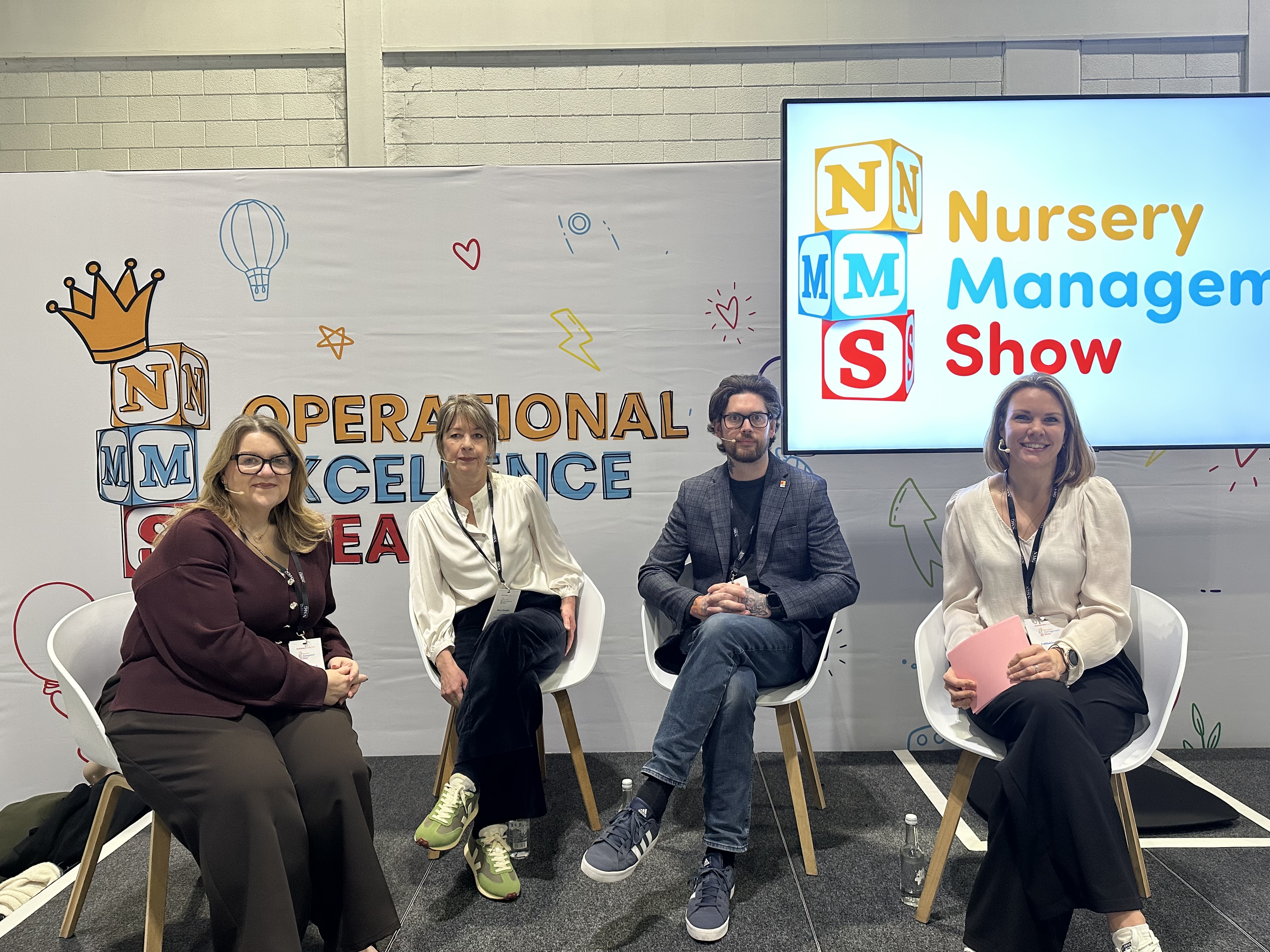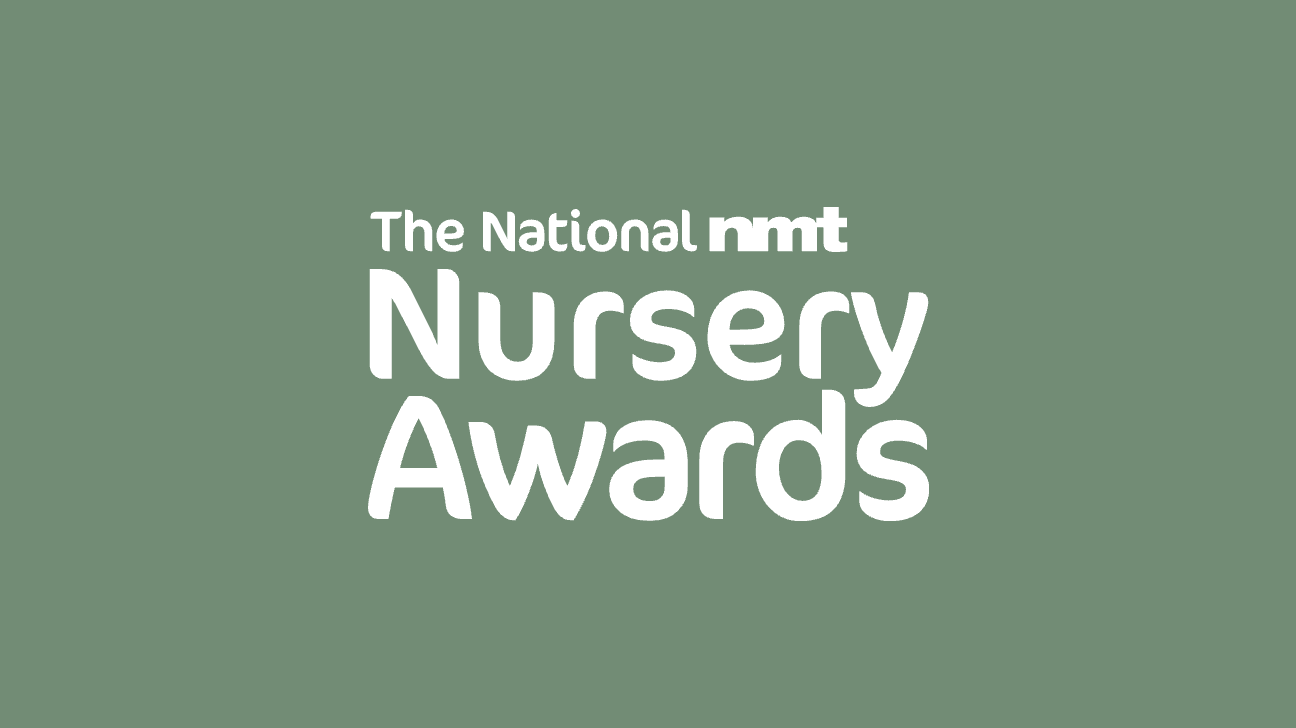Connecting children with nature in our adventurous Forest School sessions
Forest School is an innovative approach to early years education that takes learning outside into the natural world. During our Forest School sessions, children develop their independence, creativity and take risks in a safe and supportive environment. By immersing themselves in nature, children develop a sense of wonder, appreciation for the environment, and a lifelong love for learning.
Gayle, Kerry and Nicola, three of our wonderful Forest School leaders in the midlands, have shared their thoughts on all things Forest School.
Tell us a bit about yourself and where your early years story began:
Gayle: Hi, I’m Gayle and I have worked at Hermitage Nursery School for 21 years. My role is a Senior Early Years Educator in the preschool room which I thoroughly enjoy. Both as an educator and a Forest School leader, I love helping and watching the children grow in confidence and ability as they prepare for the next chapter of their story at school.

Kerry: Hi everyone, I’m Kerry, the Deputy Nursery Manager at Ashby Nursery School. Growing up, my mum worked in early years and in the holidays I would go to work with her. It was through this that I realised that this is what I wanted to do, and I went to college and completed two work placements at Ashby Nursery School. When I finished my last placement, I was offered a job which was 15 years ago. I have worked my way up from student to Deputy Manager and haven’t looked back.

Nicola: Hi, I’m Nicola and my career began with a PGCE in Primary Education specialising in Early Years at the University of Birmingham. I then worked as a primary school teacher for 10 years in a wide variety of schools teaching children from 4 to 11. When I was a trainee Forest School leader, I was asked to deliver a session to a class of children as part of their practical assessment. I went with my year one class and was fascinated by the levels of engagement of all the children, including those that normally struggled in the classroom to concentrate and stay focused. After training as a Forest School leader, I made the decision to leave primary education to work in early years. I felt the child-led, play-based approach to learning was more suited to my evolved ethos and shared a lot of the principles of the Forest School approach.
.jpg)
What does your role as Forest School leader involve?
Gayle: As a Forest School leader, I am in charge of planning and risk-assessing sessions. I am responsible for both the children and team and ensure that children get the most out of our sessions. I attend the Forest School sessions with a plan, however, its child-led nature means that if we happen to see a frog, we all go frog crazy and learn all about frogs! No two sessions are ever the same, and I love seeing both the children and the team exploring our natural environment.
Kerry: My role as a Forest School leader involves the planning and execution of exciting sessions where children explore the forest and adopt a natural flow state of learning. The children experience opportunities such as climbing trees, making mud pies, pond dipping, treasure hunts and more. Children are provided with opportunities to use tools and make fires, and my main role is to ensure they are safe and having fun.
Nicola: As a Forest School leader, my role is to act as a facilitator, providing experiences for children to grow, learn and develop in a holistic way through outdoor learning. I create opportunities that involve the natural world and its resources such as trees, minibeasts, water, sand, sticks, stones and flowers. The role of a Forest School leader is multi-layered. Firstly, my job is to be an observer taking notes on what the children are interested in, their physical, emotional and social skills. After that, I plan opportunities and experiences to incorporate their interests and develop new and existing skills. During sessions, I can go from being an educator, explaining to the children why a bee likes flowers, to a cheerleader, using positive praise and encouragement when a child is trying something new. For example, when climbing a tree for the first time they may get frustrated, and it is my role to ensure they persevere and not give up. However, my most important responsibility is to act as a role model in terms of the way I interact with the natural world showing respect, care and concern for all living things.
What are the educational benefits of Forest School?
Gayle: Children learn so much at Forest School. Our sessions provide opportunities for children to learn at their own pace amongst nature and an outdoor environment. Children love exploring, playing games, hunting for wildlife, climbing trees, using tools, pond dipping, making dens and even cooking on a campfire. A large part of Forest School is enabling the children to take risks and problem-solve in an environment where they are encouraged and supported to do so.
Kerry: At Forest School, children can test and develop their physical ability by setting themselves small achievable goals such as climbing trees and building bug hotels. We develop the children’s literacy skills by recreating stories such as Stick Man, and their independence by giving them responsibilities such as learning and abiding by our forest safety rules. Children are encouraged to take sensible risks and to set their own boundaries. As a leader, if an activity is too risky, I encourage the children to discover how to change it so that they are still in control of the situation but still get to achieve the outcome they set out. For example, if they want to climb a tree but the tree isn’t safe we will look for a safe one. By exploring and playing in their new surroundings, children build their confidence and teamwork with their peers. Together, we learn about the environment around us through activities such as rolling down hills and listening to the sounds of the forest. Our children can tell the difference between the different birds we hear tweeting, and whether we see a rabbit or squirrel track! The forest is an inclusive environment and both neurotypical and neurodiverse children are able to access this environment. I was keen to ensure the forest was safe and inclusive for all children, so I extended my qualification to include a Level 2 Autism in Forest School.
Nicola: At Forest School, children develop their problem-solving skills, emotional well-being, and physical and motor skills. They increase in motivation and concentration and building relationships with their peers and adults. Our sessions encourage children to have a positive impact on the environment and to respect and care for the natural world. The holistic approach of Forest School aims to develop all the intelligences not just intellect. Intellect is of course very important but so is the development of social, communication, emotional, physical, artistic/creative and spiritual skills. I believe the overall aim of any educator is to develop well-rounded individuals who are confident in themselves, their skills and who will go on to make a positive contribution to their communities and society as a whole. I strive to give the children of Woodville Nursery School the best start to achieving this as they embark on their educational journey.
What is your favourite thing about your role as a Forest School lead?
Gayle: I love being outside and engaging in outdoor learning activities, it is a wonderful way to connect with and appreciate nature. Forest School offers opportunities for children to learn and grow that cannot be replicated in traditional indoor settings.
Kerry: My favourite thing is being able to give the children the childhood I had. Children don’t get to climb trees and be carefree in the world anymore due to busy parent lifestyles or media influences scaremongering. I love being able to give them the space to thrive and overcome fear and apprehensions they may have. For example, I had a little boy who hadn’t had a candle on his cake since his first birthday as he had a phobia about fire, it took him the whole year of Forest School for him to face his fear and light his own fire to toast marshmallows. Each session he got closer and closer to the fire circle until that final session where he was determined, and with my support, encouragement and praise he managed it. It was the first thing he told his mum when she picked him up. In his leaver’s card, his mum thanked me and said he had a candle on his fourth birthday cake and was not scared of it. It’s the achievements that seem small are the most precious to me.
Nicola: My favourite thing about being a forest school leader is witnessing a child's self-esteem increase and confidence grow when they achieve a personal learning goal that has been challenging for them. For example, jumping from a high height, climbing a tree or holding a minibeast in their hand. Seeing that personal sense of achievement and knowing I played a part in that is very rewarding for me.
Aside from Forest School, outdoor learning is an integral part of our curriculum at Storal. We use beautiful natural materials, encourage recycling, and develop an understanding of sustainability. By spending dedicated time in our outdoor play spaces, children connect with the environmental values at the heart of all we do.





